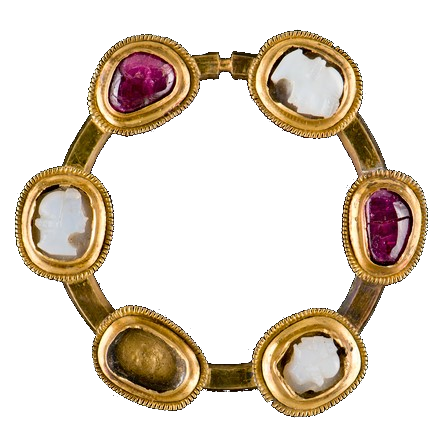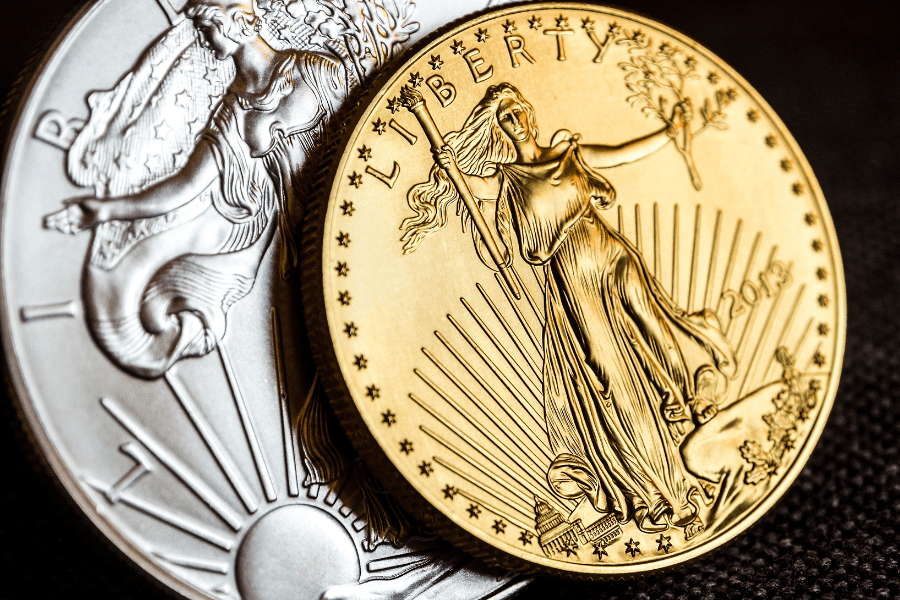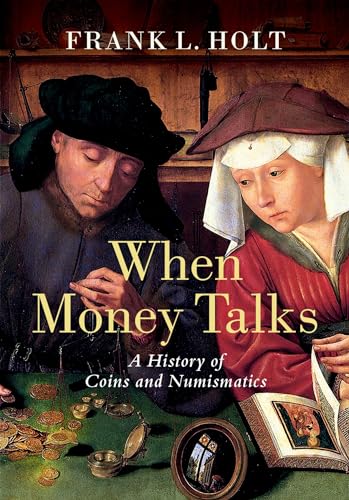Handy Tips On Picking Numismatic Value And Precious Metals
Wiki Article
What Information Can I Get About Local And Global Associations Of Numismatics By Using A Database To Conduct Research?
Here's a method for conducting research in this area: Database Selection: Choose databases that specialize in numismatic organizations, such as websites of major society for numismatics, such as the American Numismatic Association (ANA) and the International Numismatic Association (INC) or regional organizations, such as the Australian Numismatic Association. An organized approach is provided to help you conduct this type of research. Additionally databases for academics and repositories such JSTOR allow access to scholarly articles and conference proceedings.
Define Research Focus: Specify your research objectives. Do you have a desire to researching the past and current activities of international numismatic associations, regional collaborations, conferences publications, or particular subjects in numismatics discussed by these associations? Set out your objectives to guide your study.
Search Strategy: Add keywords like "numismatic associations", "global numismatics", or "regional numismatic societies," if appropriate. You can also include the names of organizations or regions. Use advanced options to filter search results by kind of document, date (such conferences papers or newsletters from associations) as well as geographic area.
Access data on the numismatic associations of both regions and globally such as their mission, history and membership. Additionally, you can find details on publications and other activities. Find out more about upcoming and past conferences workshops collaboration research initiatives, etc. Search databases for information about members, leadership of associations, and contact details.
Examine the data to determine the impact and function of both global and regional numismatic associations. Analyze how these associations aid in the development of the field of numismatics, encourage international collaborations, and spread research via conferences and publications.
Cross-Referencing Verify your findings using information from a variety of databases and other sources. Examine the initiatives and activities of different associations to gain an overall view of global and regional developments in numismatics.
Documentation: Document findings by regularly citing sources and recording the research methods you employed. Keep track of the details such as the databases that you searched with as well as the search terms used, and how relevant the source you used was for your study.
Keep up-to-date. Numismatics is constantly evolving. There are always new publications, collaborations, and conferences. Keep up-to-date by checking updates on association websites, newsletters, and journals for the most recent developments in regional and global numismatics.
These steps can help you utilize databases to research numismatics with respect to local and international associations. This method permits a thorough examination of the organization structure, the scholarly efforts, and the collaboration efforts that have shaped the numismatics business both on a global and regional scale. Read the top bullion for more recommendations including coin auction, peso, currency exhibition, bullion coins, numismatic investment, german coins, historical currency, engraving, slovak coins, dirham and more.

How Can I Research Numismatics With Respect To Artists By Using An Online Database?
Conducting research on numismatics and artists is done by using databases that concentrate on coin designers, engravers and the aesthetic aspects of the production of coins. A systematic approach is offered to help you conduct this type of research. Online catalogs of national mints like the United States Mint and Royal Mint and databases for research on numismatics (such as numismatic databases) museums collections or publications on numismatics are some examples.
Define Research Focus: Specify your research objectives. You may be interested in learning more about particular works of coin artists as well as the evolution of design of coins over time, artistic techniques used in engraving coins, and cultural influences on numismatic artwork. Determine what you're interested in to help you limit your search.
Search Strategy - Utilize keywords such as "coin designers,"" artists of numismatics," or "coin embroiders" If appropriate, include names of particular artists or historical time periods. Advanced search options are available to filter results by particular artist's specialty, for example portrait engraving or thematic designs and geographical regions.
Data Collection: Get information on coin artists including their biographies and portfolios of their designs noteworthy works, as well as contributions to numismatic arts. Information on specific coins created and engraved by artists are available, such as pictures, descriptions, or historical contexts.
Analyze the information to understand the artistic influences and designs of coin-makers. Discover how coin designs reflect the meaning of historical concepts and images. Examine and contrast the diverse artistic techniques, innovations and styles employed by artists from different periods.
Cross-Referencing: Check your research findings by cross-referencing data across several databases and museum collections, publications on numismatics, and historical archives. This will ensure the accuracy and thoroughness of your study. You'll gain insight into artists' diverse contributions to numismatic art.
Documentation. Ensure that you document your research findings systematically. Mention the sources that you have used and note the methodology. Detail the databases used, the search term(s) and the significance each resource has to your question.
Stay Updated: Numismatic art and the contribution of artists continue to evolve. Keep up to date by keeping track of updates from the museums, numismatic societies as well as scholarly journals to get the latest discoveries in the field of numismatic arts.
By following these steps, you can effectively utilize databases to study numismatics in relation to artists. This approach permits a thorough investigation into artistic techniques and influences as in addition to historical contexts and contexts. Follow the top rated weblink for mint condition for blog tips including banknote identification, currency history, precious metals, coin blank, rupee, coin pressing, nickel, dirham, coin auction, authenticity and more.

How Can I Find Numismatics As Well As Legal Experts On A Database?
Here's a method for conducting such research:Database Selection: Choose databases that specialize in research in the field of law, numismatic laws and court cases that involve numismatic issues, and academic papers on the legal aspects of the numismatics. Here's a methodological approach for conducting such a research:Databases Selection: Choose databases that are specialized in research on legal issues. These are databases that specialize in numismatics law, court decisions related to numismatics and academic papers on the legal aspects numismatics. Examples of this type of research include legal databases such as Westlaw, LexisNexis and numismatic publications.
Define Research Focus: Specify your research objectives. Are you interested in the legal frameworks that govern coins and currency, numismatic conflict, regulations for coin production and circulation, or legal interpretations of numismatic authentic and ownership? Find out where you would like to target your search.
Search Strategy: Use keywords like "numismatic law," or "legal aspects of coinage" or "numismatic conflicts," and include specific legal concepts such as authenticity, ownership and counterfeiting, when relevant. Advanced search options allow users to filter their search by date, jurisdictions (national or global), and questions of law that relate to numismatics.
Data collection: Access the legal precedents, court decisions, legislative texts, and articles that deal with numismatic laws. Find information on cases summaries or legal analysis. Interpretations of pertinent statutes as well as historical perspectives are helpful.
Analysis: Analyze and analyze the data to identify the legal challenges and implications of the numismatics. Examine how legal frameworks impact numismatic transactions, collection management as well as authentication procedures and international trade in numismatics. Compare the different legal interpretations and approaches from different states and historical periods, or even countries.
Cross-Referencing. Verify what you have identified by cross-referencing data from different databases, journals, court files, and academic papers. This ensures accuracy and completeness of your study. This also provides a comprehensive picture of the legal environment for the field of numismatics.
Documentation: Record your findings thoroughly, citing sources and noting methodologies used. Notate the database names, search terms, and the significance of each source to the research questions.
Stay up-to-date: Lawful changes and court rulings influence the interpretation of numismatic laws. Stay up-to-date by reading updates from legal databases and publications on numismatic laws and news from numismatic organizations regarding legal developments.
These steps can help you make use of databases to study numismatics from the perspective of legal experts. This method allows for a thorough investigation of the legal frameworks and problems that are entwined with the field of numismatics. Additionally, it provides insight on the legal issues that govern coinage and collection. View the best this hyperlink about coin display for blog advice including currency exhibition, coin magazine, proof, banknote printing, coin holder, quarter, mint, currency collecting, coin rarity, yen and more.
How Do I Research Numismatics In Relation To Conservation And Preservation Experts Using Databases For Numismatics?
This type of research requires databases that are focused on conservation methods and practices for conservation, case studies of numismatic artifacts and contributions by conservation experts. To conduct a study follow these steps Databank Selection: Choose databases that are focused on the conservation and preservation of cultural artifacts, including numismatics. There are examples of these on the web pages of conservation organizations (such International Institute for Conservation of Historic and Artistic Works), in museum conservation departments as well as in specialist publications.
Define Research Focus: Specify your research objectives. Are you interested in understanding conservation techniques that are applied to numismatic objects, case studies of medals or coins that have been restored, preventive conservation measures or ethical considerations for conservation of numismatics? Clarify the focus of your search.
Search Strategy: Use keywords such as "numismatic preservation", "coin conservation techniques", "conservation methods for medals" and specific conservation methods in the event that they are applicable (such cleaning, stabilization or storage) in addition to historical periods. You can use advanced search to sort the results according to conservation topics, dates, or case studies.
Data Collection: Access data on conservation practices as well as preservation methods that are applied to objects of numismatic value. Specifics such as case studies on conservation treatments, articles on preventive conservation strategies, and interviews with conservationists may be collected.
Examine data to gain a better understanding of the nature of numismatic conservation. Analyze the impact of conservation treatments on the preservation of numismatic artifacts the role of the scientific method in making conservation decisions and the integration of ethical standards into conservation methods.
Cross-Referencing. Check that your results are accurate and complete by comparing data from different databases, websites of conservation organizations, museum conservation departments or even scholarly papers. This will ensure accuracy and completeness of your research. It also gives an extensive overview of numismatic preservation practices.
Documentation. Document your findings in an organized way. Include all sources used and include the methodology. Keep track of information like the databases you've used, your search terms, and the relevance of these to the research questions.
Keep up to date: As technology and research progresses conservation techniques and standards change. Monitor developments from museums, conservation departments from conservation organizations, and publications specializing in numismatics to keep abreast of the most recent developments.
Following these steps, you'll be able to effectively use databases to explore numismatics in relation to experts in conservation and preservation. This method lets you study the ethical principles and techniques employed by conservationists when conserving the numismatics. You can also gain knowledge of how they've contributed to the cause. View the most popular ringgit for site info including obsolete currency, quarter, copyright detection, rial, coin society, rand, slovak coins, rand, coin, central bank and more.

How Do I Utilize A Database To Research Numismatics Regarding Industry Consultants?
Here's a structured approach to conducting such research:Database Selection: Choose databases that specialize in consulting companies, industry reports and publications relevant to the field of numismatics. Here's a structured approach to conduct such research:Database Selection: Choose databases that specialize in consulting firms, industry reports, and other publications that are relevant to numismatics. These include business directories and websites for consulting firms. They also include publications by numismatic societies.
Define Research Focus: Specify your research objectives. Are you interested in knowing more about the services of consulting offered to numismatic businesses Market analysis reports, market analysis on numismatics? Or the expertise of individual consultants in particular numismatic sectors, or trends identified by industry consultants? Clarify your search to aid you.
Search Strategy: Utilize keywords such as "numismatic industry consultants," "consulting firms in the field of numismatics,"" "market analysis reports on coins," as well as include specific areas of expertise or geographic regions where applicable. Use advanced search options by sorting results by the specialties of consultants and consulting services.
Data Collection: Find information about consulting firms who specialize in numismatics and industry experts who offer services to numismatic companies. Collect information such as consultant profiles and specializations (market research collection management and authenticity) and testimonials from clients report on industry trends, many more.
Analysis: Analyze the data to understand the roles and contributions of consultants from industry in the field of numismatics. Analyze the skills and techniques used by consultants to advise on numismatic investments, market trends as well as collection management strategies and compliance with regulatory requirements.
Cross-Reference: Verify the accuracy of your research by cross-referencing information from multiple databases, directories of consulting companies, publications and reports issued by numismatic societies, as and reports on industry. This method ensures that your research is accurate and complete, providing you with a a complete view of the world of consulting numismatics.
Documentation: Document your findings systematically, citing sources and noting the methods you used. Note down the names of databases, search terms and relevance of each source to your study.
Stay up-to-date: Consultancy and other services and market trends in Numismatics are constantly evolving as regulatory and economic adjustments occur. You can stay up to date with industry trends by following updates from websites of consulting companies and reports from industry experts.
These steps will enable you to explore the world of numismatics and industry experts. This approach permits a thorough examination of market analysis as well as strategic advice provided by consultants in the numismatic sector. They can offer valuable perspectives on business operations investments, strategies for investment and market changes. Take a look at the top coin mintmark for website recommendations including banknote design, coin forum, peso, legal tender, coin holder, bank, money, coin news, numismatic investment, coin rarity and more.
